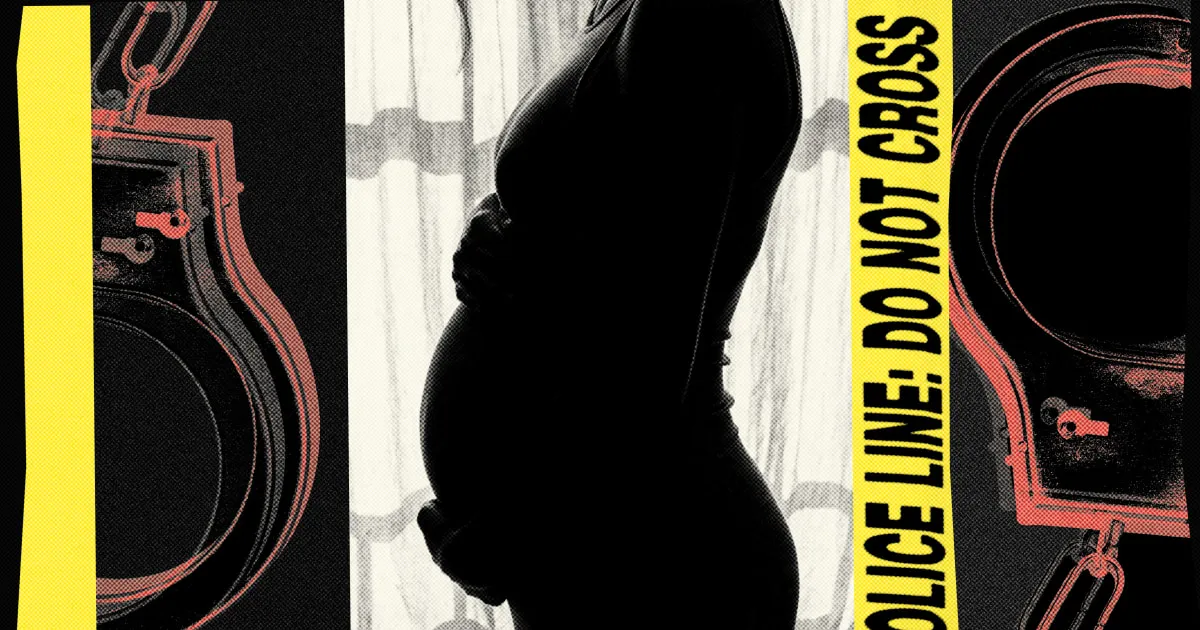
On March 20, in a rural area of Georgia, an ambulance was dispatched to respond to a 911 call concerning an unconscious and bleeding woman found in an apartment. Upon arrival, first responders determined that the woman, Selena Maria Chandler-Scott, had experienced a miscarriage. However, what unfolded next turned her ordeal into a significant legal controversy.
Chandler-Scott was transported to a local hospital for medical care, but a witness reported that she had disposed of the fetal remains in a dumpster. This led to a police investigation, during which the remains were recovered, and Chandler-Scott faced charges for concealing the death of another person and abandoning a dead body. Ultimately, these charges were dropped following an autopsy that concluded she had a “natural miscarriage” at approximately 19 weeks, determining that the fetus was non-viable.
This incident has ignited a broader conversation about the treatment of miscarriages in states with strict abortion laws. Advocates for women’s health express concern that Chandler-Scott's case is not isolated and reflects a troubling trend where miscarriages are subjected to legal scrutiny. In Georgia, the six-week abortion ban known as the Living Infants Fairness and Equality (LIFE) Act grants legal recognition to any fetus with a heartbeat, raising questions about how fetal remains should be disposed of and who has the authority to make such decisions.
Experts indicate that the push for fetal personhood legislation has intensified since the 2022 Dobbs decision, which overturned Roe v. Wade. The Guttmacher Institute reports that around two dozen personhood bills have been introduced in the first quarter of 2023 alone. Jill Wieber Lens, a professor at the University of Iowa College of Law, emphasizes the implications of treating fetal remains as human bodies, stating that it could lead to criminal charges for many women experiencing miscarriages.
Chandler-Scott's case draws parallels to that of Brittany Watts, a 34-year-old woman from Warren, Ohio, who faced similar charges after her miscarriage in 2023, although those charges were later dismissed. Watts subsequently filed a lawsuit against the city and the hospital that treated her, highlighting the fear that such legal actions could become commonplace. She expressed concern over potential future arrests, stating, “As the old saying goes, ‘History repeats itself.’”
According to a report from Pregnancy Justice, the number of women facing criminal charges related to pregnancy has surged since the Dobbs ruling, with at least 210 women charged within the following year. Vulnerable populations, including women of color and those struggling with substance use, are particularly at risk during these interactions with authorities.
While the dismissal of charges against Chandler-Scott is seen as a positive development by advocates, it does not erase the emotional and psychological toll that such accusations can have on women. Dana Sussman, senior vice president of Pregnancy Justice, stated, “It doesn’t undo the very real harm and devastation charges like these bring in the first place.”
Monica Simpson, executive director of SisterSong, a reproductive justice organization, criticized Georgia's approach to women’s health, pointing to cases like that of Amber Thurman, who died after delays in receiving necessary medical care. Simpson remarked, “The picture that’s being painted in Georgia is a very grim one.”
In the backdrop of these events, Georgia recently debated a personhood bill that would have allowed individuals who terminate their pregnancies to be charged with murder. Although the bill did not progress, it reflects the ongoing struggle over reproductive rights in the state. State Senator Sally Harrell publicly denounced Chandler-Scott’s arrest, labeling it “the idiocy of fetal personhood” and highlighting the fears it instills in women of reproductive age.
The Tift County district attorney's office, which handled Chandler-Scott's case, noted that pursuing charges was not in the interest of justice, indicating the fetus was not born alive. Community members have expressed mixed feelings regarding the decision to drop the charges, with many emphasizing the emotional distress caused by such legal actions.
The case of Selena Maria Chandler-Scott serves as a pivotal example of the intersection between legal systems and women’s health issues in Georgia. As conversations around fetal personhood and reproductive rights continue to evolve, advocates stress the need for policies that prioritize women's health care and access rather than punitive measures. The ongoing debate underscores the importance of compassion and understanding during one of the most difficult experiences a woman can face—miscarriage.